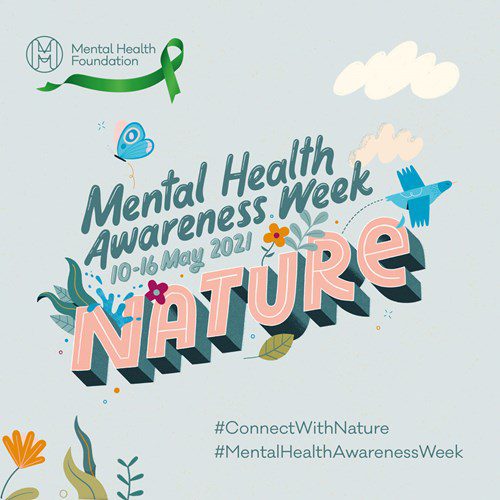Breaking the social stigma of mental health
Barcelona faculty member gives some sound advice for Mental Health Awareness Month
How higher education institutions can help create mentally healthy communities for the long term
Having reached burnout in my early thirties, I for one welcome the growing conversation about mental health in organizations and it’s great to see that in many companies it’s not just a conversation, mental health is taking center stage.
Typeform recently held their Meaningful event which tackled topics from mental health to domestic violence and included speakers from across the globe who are committed to creating purposeful and inclusive organizations.
Why does this matter?

Well, unsurprisingly, according to the WEF our world is in the grip of a mental health crisis, with young people and those who are nonbinary/third gender struggling the most.
As an educator, as well as managing my own mental health struggles with anxiety last year, I was also faced with those of my students, which made me feel even more overwhelmed, so I set out to find out how I and others can help our students and how higher education institutions can help us.
This led me to Javier Suarez and Sancar Sahin, founders of Oliva Health, a platform that offers meaningful therapy to busy people, ‘whose aim is to make mental healthcare a natural part of modern daily life, just like physical healthcare is today.’ When I saw this I just knew I had to speak to these folks!
Oliva Health kindly joined my Personal Mastery class at Geneva Business School in Barcelona to talk about their own experiences and how we can break down stigma and discrimination around mental health issues. Judging by the engagement and the number of questions from the students, this is obviously a topic that is important to them, so we need to provide more mental health services within our schools to help people with mental health concerns.
In the session, we discussed what we can do as individuals and organizations to help. Here are some of those ideas…
- Listen. When it comes to supporting someone who is experiencing issues with their mental wellbeing, listening comes at the top of the list.
- Create safe spaces. Whether virtual or on campus, areas where students can feel comfortable talking must be accessible and readily available.
- Create a kinder environment. Right now we have no idea what trauma people are suffering in the fallout from a global healthcare crisis, so it is important to treat everyone with kindness.
- Create drop-in meetings or arrange 1:1 meetings with your students. Students may feel more able to open up in smaller groups and as an educator, you will get to know your students better and recognize the signs that something is not right.
- Create student affinity/resource groups for students from underrepresented backgrounds.
- Provide wellness activities such as mindfulness and meditation.
- Run workshops on sleep health. The WEF report stresses the importance of sleep, exercise, and socializing to boost mental health.
- Provide plenty of social activities both online and offline. This can help to prevent the feeling of isolation.
- Educate students and staff as to how to take care of their mental health I have achieved this by running courses such as Personal Mastery. Areas I’ve taught this semester include Emotional Intelligence, Digital Health, and Awareness and still to come we have Resilience and Confidence to look forward to. These skills not only help students manage their stress but make them better leaders and managers.
- Use an external therapy platform such as Oliva Health. There are many online options that often have a sliding scale for people from different economic backgrounds.
And, as Javier and Sancar said, one of the best ways we can break down the stigma is to talk about our own struggles so we know we’re not alone.
So, if you are suffering, reach out to a close friend or someone you trust. The odds are they know someone in a similar situation and sharing your problem is the first step to finding a solution that works for you.
You may be wondering how I solved my burnout? I quit my job and went traveling, but with depression and anxiety disorders costing the global economy $1 trillion every year in lost productivity, not to mention the terrible human toll, this approach is generally not a panacea. I realize that my privilege as a relatively affluent, young woman gave me the opportunity to quit my job and travel and more recently, afford therapy. Not many people have this luxury.
For organizations, it’s a lot more expensive to ignore the problem, which is why 72% of companies surveyed by PWC are giving employees additional support with mental health. Javier put it very eloquently…
The most important asset in a company is the collection of brains…people trying to create something with their minds…and if those minds are not healthy, you’re just throwing money out of the window.
I also couldn’t agree more with Michael Freeman, that “mental health is as essential for knowledge work in the 21st century as physical health was for physical labor in the pastâ€. His recent study found that entrepreneurs are 50 percent more likely to report having a mental health condition, with some specific conditions being incredibly prevalent amongst founders, among them depression and substance abuse.
In the UK, it’s Mental Health Awareness Week from the 10th to the 16th of May. It’s my mission to get our school talking about this, which gave me the impetus to pen this article.
How will you break the stigma of mental health and make sure that your organization protects the minds of its employees?
Tell us in the comments below!





